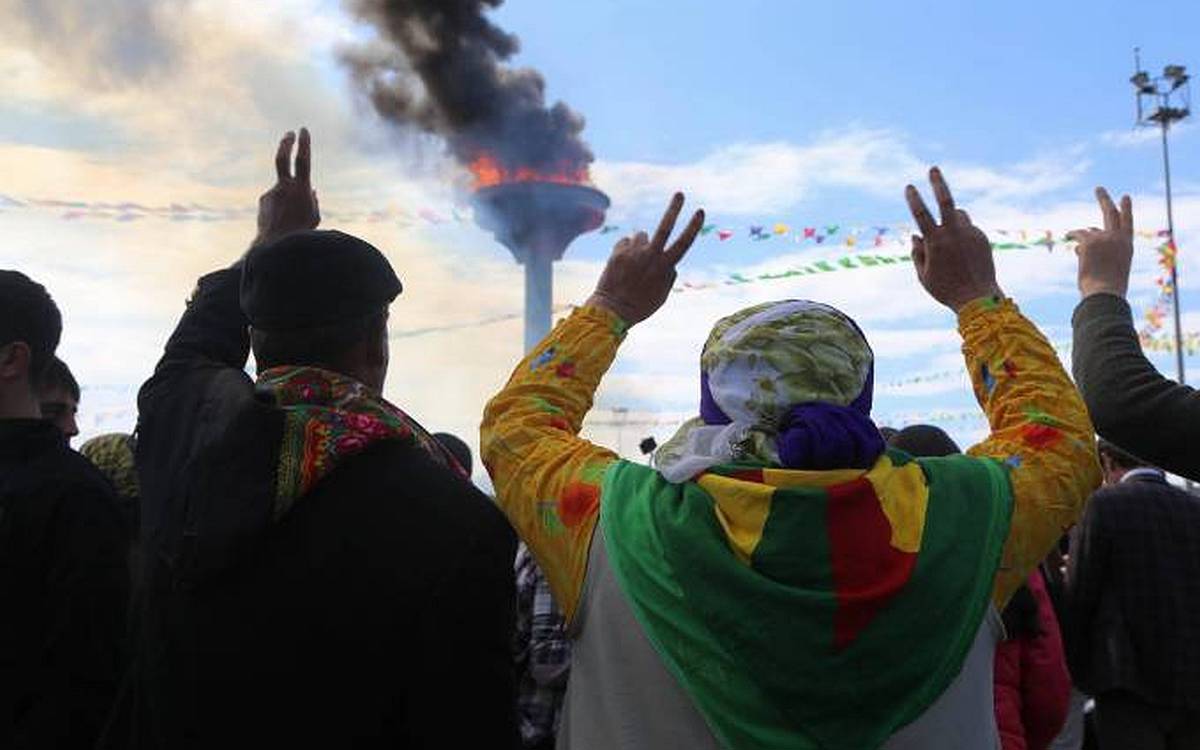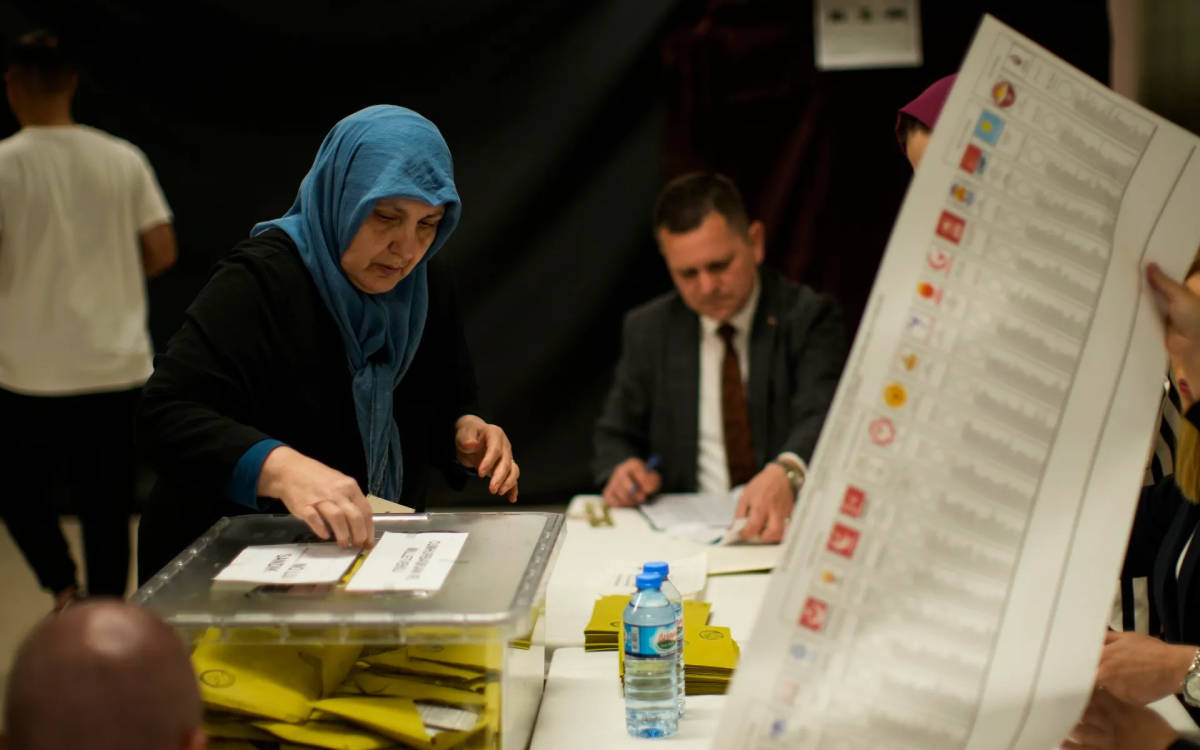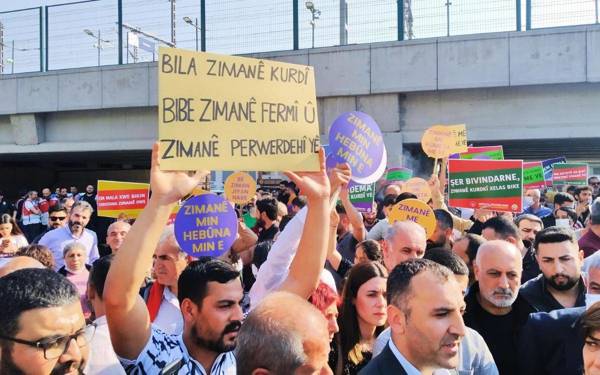The Kurdish Barometer, a part of the Diyarbakır based Kurdish Studies Center, has shared its first study with the public.
The research was conducted in Adana, İzmir, Ağrı, Kars, Ankara, Malatya, Batman, Mardin, Bingöl, Mersin, Diyarbakır, Muş, Erzurum, Urfa, Antep, Şırnak, Hakkari, Dersim, Istanbul, and Van, in the categories of core Kurdish provinces (48.7), peripheral Kurdish provinces (19.5), nearby migration provinces (6.2), and distant migration provinces (25.6). The study involved face-to-face interviews with 1492 participants.
According to the research, 54% of Kurds identify themselves as Muslim, 28% as freedom-loving, and 25% as religious.
Among Kurds, the freedom-loving identity becomes more prominent as the age decreases, while the Muslim-religious identity becomes more pronounced as the age increases. Kurds rate their religiosity as 6.10 on a scale of 10. Kurdish nationalism also exceeds a score of 5.
The results indicate that religiosity levels are not among the primary determinants of Kurdish identity. However, the strength of Kurdish identity weakens as conservatism and right-wing tendencies increase. It is also observed that those with a "strong" Kurdish identity have a higher interest in politics.
Approximately 12 million adults (aged 17 and above) of Kurdish ethnicity live in Turkey. This figure represents approximately 20% of the adult population in Turkey.
Kurdish nationalism on the rise among youth
Among Kurdish youth aged 17-29, nationalism is significantly higher compared to those above 30 years old.
Identity varies with education level, with higher education leading to more diversified identities. University graduates not only identify as freedom-loving, socialist, and advocates for Kurdish rights but also as social democrats, secularists, and followers of Atatürk's principles.
Youth and students identify more strongly with their Kurdish identity
According to the data, two-thirds of Kurds (67.4%) strongly identify with their Kurdish identity. Young people, students, merchants, and those with higher income exhibit higher levels of identifying with their Kurdish identity, while it's lower among the middle class and civil servants.
Additionally, in the "peripheral regions," identity adoption is lower where Kurdish identity is stronger among Kurds who have migrated here.
According to the results, Kurdish nationalism is on the rise compared to five years ago. In research conducted with Turks, nationalism is over 7%. Among Kurds, 17% give a rating of 9-10 for Kurdish nationalism, while among Turks, a similar percentage reaches 44%.
HDP voters have the strongest Kurdish identity
In the research conducted on various topics such as mother tongue and the Kurdish issue, respondents were asked, "To what extent do you consider yourself as Kurdish?"
- 53.2% of the participants answered "high."
- 32.6% answered "moderate."
- 14.2% answered "low."
Furthermore, 71.2% of the interviewees agreed with the statement "I am proud of being Kurdish."
According to the research, the voter group where the "Kurdish identity is strongest" is the People's Democratic Party (HDP.) 85.8% of HDP voters say they are strongly attached to their identity, while for Justice and Development Party (AKP) voters, this rate is 48.9%, and for the Republican People's Party (CHP) voters, it's 52.9%.
Education should be in two languages
When asked the question, "What should be the language of instruction in schools for those whose mother tongue is not Turkish but Kurmanci/Zazaki?" the respondents provided the following answers:
- 44% said, "Education should be bilingual, providing instruction in both Turkish and the mother tongue."
- 27% said, "The language of instruction should be Turkish, and the mother tongue should be taught separately at school."
- 19.2% said, "The language of instruction should be Turkish, and there is no need to teach the mother tongue at school."
- 9.2% said, "The language of instruction should be only the mother tongue (Kurmanci/Zazaki)."
There is a strong relationship between being able to speak Kurdish and embracing Kurdish identity. Among those who can speak their mother tongue, 83% have a strong Kurdish identity, while among those who cannot, one-third have a weak identity. The connection between listening to Kurdish music and Kurdish identity is also quite strong. The use of social media is more widespread among those with a strong Kurdish identity.
There should be services in Kurdish in the Kurdish provinces
In response to the question, "What should be the official language in regions with a significant Kurdish population?" - 41.8% say, "The official language should be Turkish, but Kurdish should also be provided." 33.2% say, "There should be two official languages, Turkish and Kurdish." 11.4% say, "The official language should only be Turkish." 13.5% say, "The official language should only be Kurdish."
Regarding the statement "Kurdish should be the official language in Turkey," 61% agreed, 19% disagreed, and 20% were undecided.
30% of Kurds speak Kurdish at a good level, while 31% speak it at an intermediate level. There is a strong relationship between the strength of Kurdish identity and the level of speaking Kurdish. Among those with a very strong Kurdish identity, the rate of speaking Kurdish well reaches 50%, while only 7.5% of those with a weak Kurdish identity can speak Kurdish well.
58 percent face discrimination due to their Kurdish identity
When asked if there is a Kurdish issue in Turkey, 51.5% of respondents answered "Yes, there is a Kurdish issue/Kurdish question". 16.3% stated, "There is no Kurdish issue, but Kurds have problems."
Regarding the question "Do you believe that you face discrimination due to your Kurdish identity?" 58% of the respondents answered "yes."
Close to 60% of Kurds believe they face discrimination due to their Kurdish identity, and this perception of discrimination increases as their Kurdish identity strengthens. Among those with a weak Kurdish identity, 29% claimed to have faced discrimination, while among those who strongly identify as Kurds, this rate exceeds 74%.
"Kurds are not equal in the eyes of the state"
When asked, "Do you believe that Turks and Kurds are equal in the eyes of the state?" 48% of the participants answered "not equal," 28% said "neither equal nor unequal," and 24% responded with "not equal."
Nearly half of the Kurds believe they face discrimination in the state-provided services like security, healthcare, education, and administrative services.
Regarding the question, "Have you suffered as a result of the Kurdish issue or the ongoing conflict?" 32% of the respondents answered "yes."
Among those who strongly identify with their Kurdish identity, 44% claimed they have suffered. Half of those who said they have suffered reported economic losses, while nearly 40% said they experienced mistreatment and were forced to leave their living area. One out of every three people who said they suffered has mentioned moving from their city.
Turkey not "livable" for Kurds
Of the Kurds who participated in the survey, 43.3% responded "Unlivable" to the question, "How livable is Turkey?" while 34.1% said "In between," and 22.6% answered "Livable."
To the question, "How livable is Turkey for Kurds?" 44% replied "Unlivable," 33.9% chose "In between," and 22.1% said "Livable."
"Non-recognition of the Kurdish identity is the source of the problem"
When asked, "In your opinion, which of the following factors has the most influence on the Kurdish issue?" 51.6% of respondents said, "Non-recognition of the Kurdish identity," while 49.6% chose the answer, "Discrimination against Kurds by the state."
Half of the participants believe that the practices of the state are the source of the Kurdish issue. The Kurdish issue is associated with the recognition of identity and discrimination against Kurds.
Nearly half of the Kurds think that in the past five years, discrimination against Kurds, investments in provinces, Kurdish political influence, and Turkish-Kurdish polarization have worsened. The percentage of those who believe things have improved remains below a quarter.
(RT/PE)








